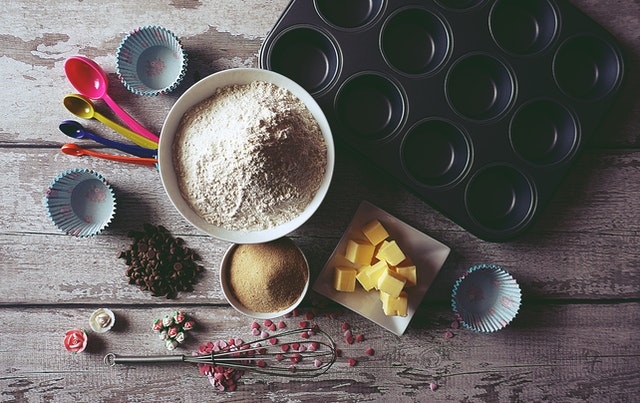
Everyone loves some good dessert after a satisfying meal. Or rather, no one wants their snack cabinets to be empty. These call for some bakery ingredients that will keep your kitchen fresh and inviting. While you can’t have a whole bakery in your house, there are definitely some specific ingredients that you must have.
Of course, there are a couple of factors that depend on what ingredients and baking equipment you should invest in. Your favorites should be your number one drive and inspiration in making the decision. Different people like different things. However, here are some ingredients to get you started with home baking, or rather keep you going;
The Basics
First things first, if at all you are going to make your favorite snack or dessert you must have the very basic ingredients every baker has. Flour is one of the basics you definitely need. There are different types of flour you can find in the market from different brands.
All-purpose flour, just like the name suggests, is a jack of all trades when it comes to baking. You can use this to make your cookies, pancakes, muffins, and almost in every other baking activity. The flour is basically made from a blend of hard wheat (hi-gluten) and soft wheat (low-gluten) to achieve its fluffy and light texture.
Alternatively, you can choose to get the all-level flours to add a specialty to your pantry. This also depends on what kind of baking you like. It is always wise to buy in small quantities from the bulk bins lest you want to store unused products, with a high potential to spoil.
You also want to go with your cookbook and recipes. Use the specified flour recommended until you get the particular one that suits you the best. Some kinds of flours include;
- Whole wheat flour
- Whole grain flour
- Bread flour
- Cake flour
- Pastry flour
- Self-rising flour
- Alternative non-wheat flours
- Cornmeal and
- Corn starch
Learners are also basic ingredients when it comes to baking. They are the reason behind the raising of the baked goods, and they come in two types; chemical and biological. Some of the basic learners include baking soda, baking powder, and yeast. Next-level learners include compressed yeast and sourdough starters.
Sugar and salts are also some of the basics. Some of the sugars used in baking include granulated sugar, powdered sugar, brown sugar, castor sugar, and decorating, or coarse sugar. Basic salts include granulated table salt and sea salts.
The basic baking dairies include unsalted butter, eggs, milk, buttermilk, cream cheese, and other alternative kinds of milk such as those made from soy, coconut, nuts, and rice.
Some of the basic fat you need to bake include vegetable oils, butter, and shortening. Vegetable oil is in neutral flavor and used both in the recipe as well as oiling the baking pan. Shorting is a solid fat used by some cooks to mostly replace butter.
Extracts and Flavoring
No dessert is a dessert without all the spice and flavoring. When it comes to this part, it really depends on what you like and what you want to experiment with. There are many different ingredients you can use to spice up your pastries and cakes. Examples of these extras and flavoring include pure vanilla extracts, almond, lemon, mint, rum, and brandy flavoring, and whole vanilla bean.
When it comes to other add-ins, this is where different individuals get really personal. You can include just about anything you like; chocolates? Dried fruits? Rolled oats? Nuts? Jams and Jellies? Chia seeds? Coconut? Whatever it is that your taste glands are craving for, stick up!
Hey welcome to my blog . I am a modern women who love to share any tips on lifestyle, health, travel. Hope you join me in this journey!

Speak Your Mind